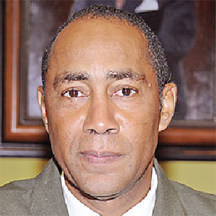(Trinidad Express) The region’s most sophisticated clay-block plant, run by Abel/Bestcrete, is scheduled to begin commercial production by next month, ANSA McAL chief operating officer Gerry Brooks said on Tuesday.

Speaking to the Express after the group’s annual general meeting at Tatil Building, Maraval Road, Port of Spain, Brooks said right now the group was “proving” the plant and machinery, with the first complete fired and dried block expected very soon hot out the kiln.
The TT$400 million TK4 clay-processing block plant is located in Chaguanas and output is expected to be 50 million pieces a year, double the existing capacity, Brooks said.
“This block plant is state-of-the-art. Its production process is the latest and most modern that you will find on par internationally,” he said.
Brooks said right now on the market was a 4 x 8 x 12 block, which is typically a partition block and not a foundation block. The new plant will allow Abel/Bestcrete to move to 4x8x12, 4x8x16, and 6x8x16, which is the foundation block, and an 8x8x16.
“It also allows us to utilise clay, which we have in fairly large quantities locally. It is also a lighter block, so masons will be able to handle more blocks on a daily basis. In terms of compressive strength, the block is as good, or better than concrete blocks. The block will travel better, it is aesthetically pleasing, thermally cooler and the pricing point is going to be better than concrete,” Brooks said, adding that the company plans to export the product throughout the Caribbean.
He said feedback so far from contractors and architects has been good. He also used the opportunity to stress the importance of having proper building codes.
“One of the key things the government needs to do is modernise and implement a building code so in the event of a hurricane or rainstorm what you have is an infrastructural stock is more robust. In the event of a hurricane (or other natural disaster), weak, damaged infrastructure can cost between five and ten per cent of GDP to rebuild,” he said.
Brooks said while fuel “in the form of natural gas” is not a problem, aggregate and sand are becoming in short supply and increasing in cost.
“The challenge is getting aggregate. Cement prices have increased and now aggregate prices are increasing. We are also seeing a shortage in aggregate needed for larger block producers. It is therefore very important the government opens up quarrying acreage and appoint an environment commission to get matters before the Environmental Management Authority resolved quickly,” he said.
For the group in general, Brooks said the outlook for 2013 remains optimistic, and the company is excited with moving forward.
“(We have seen that) the group’s performance tends to improve in the second half of the year,” he said.
At the close of trading on Wednesday, ANSA McAL’s share price (TTSE:AMCL) was $67.22 per stock unit.
